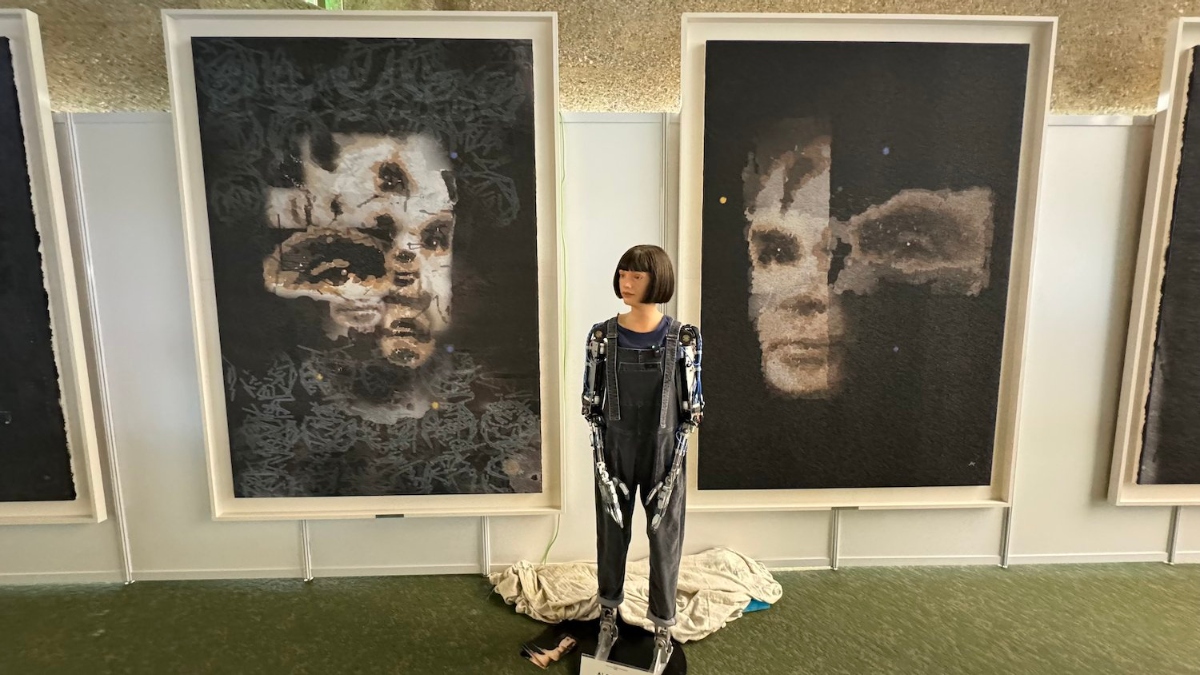In a groundbreaking moment for both art and technology, a portrait of English mathematician Alan Turing created by the humanoid robot artist Ai-Da sold for an impressive $1,320,000 at Sotheby’s Digital Art Sale in London on Thursday. The sale far surpassed its initial pre-sale estimate of $180,000, highlighting the evolving relationship between artificial intelligence and the art world.
Titled “A.I. God,” the 2.2-meter portrait reflects the advanced capabilities of Ai-Da, recognized as the world’s first ultra-realistic robot artist. The auction house called the sale a significant milestone, stating, “Today’s record-breaking sale price for the first artwork by a humanoid robot artist marks a moment in the history of modern and contemporary art and reflects the growing intersection between A.I. technology and the global art market.”
Ai-Da, equipped with AI technology to speak and engage, remarked on the deeper purpose of its creations: “The key value of my work is its capacity to serve as a catalyst for dialogue about emerging technologies.” The choice of Turing as a subject aimed to prompt reflection on the “god-like nature of AI and computing” while considering the ethical questions tied to these advancements.
Developed by Aidan Meller, a specialist in modern art, Ai-Da was named after Ada Lovelace, known as the world’s first computer programmer. Meller emphasized the importance of the project: “The greatest artists in history grappled with their period of time, and both celebrated and questioned society’s shifts. Ai-Da Robot as technology is the perfect artist today to discuss the current developments with technology and its unfolding legacy.”
The portrait, characterized by “muted tones and broken facial planes,” symbolizes Turing’s concerns from the 1950s about the potential challenges of AI, according to Meller. He described Ai-Da’s creations as “ethereal and haunting,” underscoring their role in questioning the future of AI and humanity’s efforts to control its power.






